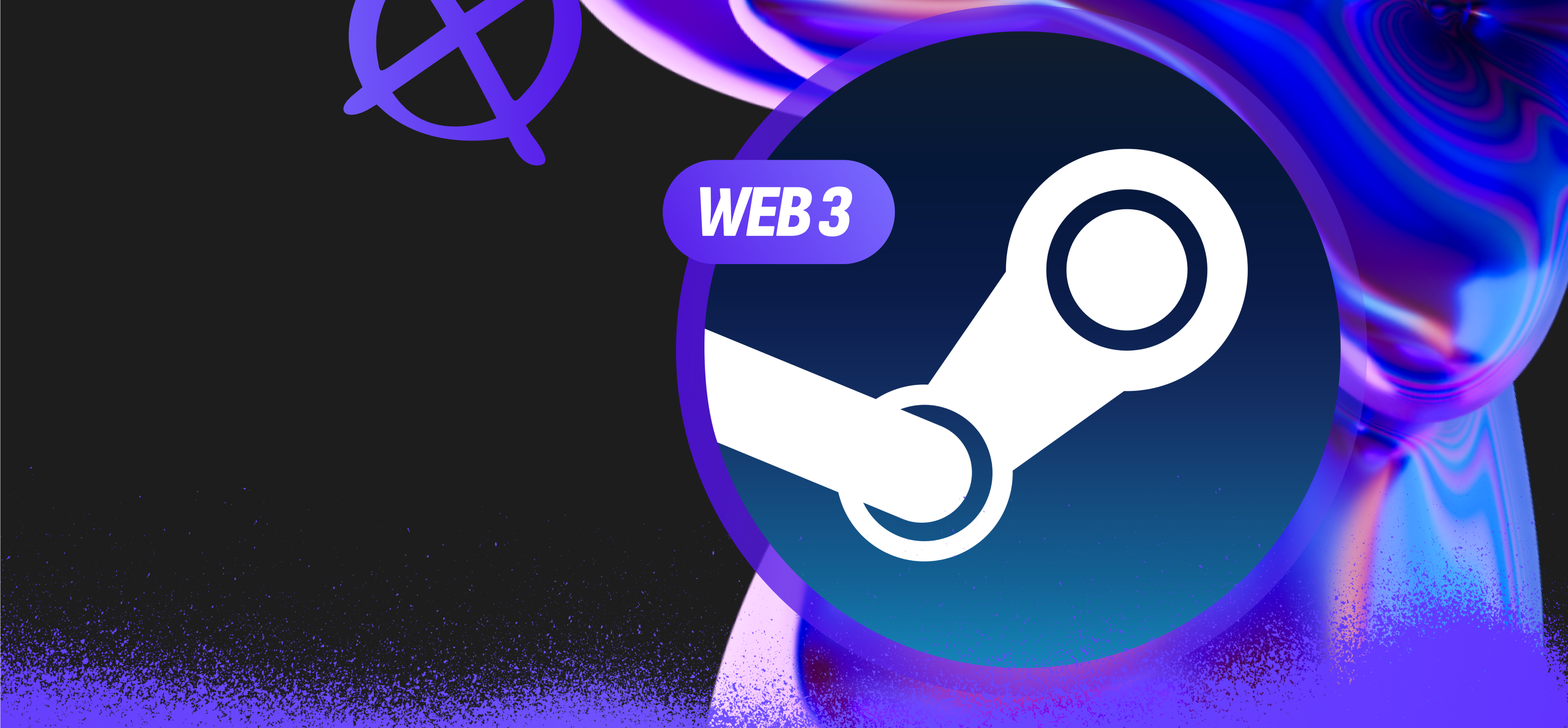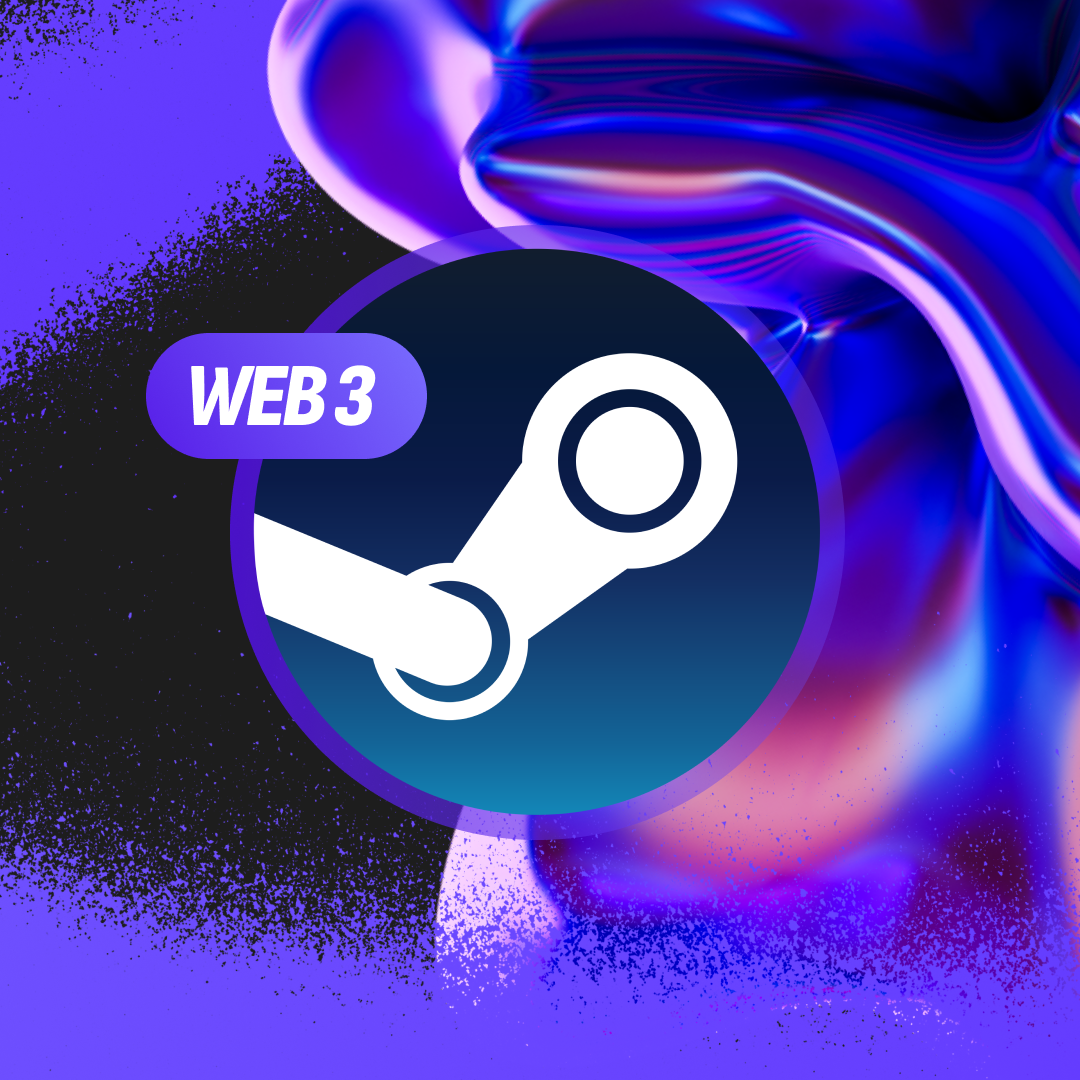Unlike the traditional gaming environment, Web3 still lacks any powerhouse that would assemble all the relevant games and gaming interactions. Such as Steam or Epic Store. Just like musicians’ digital presence is tied to Spotify, movies assemble under Netflix's roof, games have found a home on Steam, and players take this platform as the universal, all-in-one place to discover games, play, and socialize with fellow gamers. But not Web3 gamers. Web3 gaming is still emerging, and despite several efforts, no one has managed to fill Steam’s shoes. Will we see any monolithic gaming platform in Web3? Do we even need one?

Assessing Advantages of Game Distribution Platforms
Despite the Steam criticism tied to Valve’s monopoly standing, distribution platforms such as Steam or Epic Store offer a vast array of advantages for players and developers alike. Millions of gamers all around the world are seeking out Steam to learn about new games, launch them and play, socialize with friends, and finally, enjoy gaming without the fear of being scammed.
Benefits for Players

-
Accessibility and Convenience - Game distribution platforms make it incredibly convenient for gamers to access and purchase games. With a few clicks, players can browse through a vast library of titles, make purchases, and have games automatically installed and updated on their systems.
-
Vast Game Libraries - These platforms offer extensive libraries of games spanning various genres and styles, ensuring that there is something for every type of gamer. This diversity encourages exploration and experimentation.
-
Unified Digital Distribution - Game distribution platforms have largely replaced physical copies of games. This shift has reduced the environmental impact associated with manufacturing and shipping physical discs, making gaming more eco-friendly.
-
Community Features - These platforms provide integrated social and community features, such as friends lists, chat, and forums. Gamers can connect with friends, share experiences, and even join or create gaming communities based on their interests.
-
User Reviews and Ratings - Players can leave reviews and ratings for games, helping others make informed decisions about what to play. This transparency holds developers accountable and encourages quality game development.
-
Automatic Updates - Gamers don't need to manually update their games; the platforms handle this process automatically. This ensures that players always have access to the latest features and bug fixes.
-
Cloud Saves and Cross-Platform Play - Many game distribution platforms offer cloud save functionality, allowing players to sync their progress across different devices. Cross-platform play also enables gamers on various platforms to play together, fostering a more inclusive gaming environment.
Benefits for Game Developers

-
Reliable Support - Game distribution platforms often offer resources, tools, and support for game developers. This includes access to development kits, marketing assistance, and distribution infrastructure, which makes it easier for developers to bring their games to a wide audience.
-
Anti-Piracy Measures - These platforms employ robust anti-piracy measures, reducing the prevalence of illegal copies and ensuring that developers are compensated for their hard work.
-
Support for Indie Developers - Game distribution platforms have made it easier for independent developers to reach a global audience. This democratization of game distribution has led to a thriving indie game scene.
-
Revenue Sharing Models - These platforms typically offer fair revenue-sharing models with developers, allowing them to receive a significant portion of the sales revenue, which can help sustain their businesses and fund future projects.
Love it or hate it, game distribution platforms offer a vast array of benefits for both players and developers. While traditional game titles enjoy a place where gaming meets gamers, blockchain gaming is a different story. Despite lukewarm efforts, no one seems to leave a significant mark in Web3 games’ distribution - let’s look at several up-and-coming platforms that sprouted up and died off.
Web3 Games’ Distribution Platforms - Where Did They Fail?
Known as game launchers, not a small number of several Web3 game distribution platforms have graced blockchain space with their vision of a unified Web3 gaming experience, Each different, all of them have something in common - none has succeeded.
Recently, Ryu Games has been aiming to simplify the world of blockchain gaming with their up-and-coming platform, Flame, an all-in-one Web3 marketplace, multi-chain wallet, and game launcher under one roof. The platform connects users to major crypto exchanges, making it easy to buy crypto and access blockchain games. It already hosts several titles and has plans for more, including its exclusive game, Crystal Quest.
Ryu Games is determined to become a top destination for crypto-powered games and has enlisted former Steam Senior Engineer Rick Ellis as Chief Product Officer to help achieve this goal. The next ones, Elixir, Plxyer, HyperPlay, and many others, also seem adamant about their Web3 games distribution efforts.
Other platforms, such as Kongregate and LootRush, are also entering the decentralized gaming space, indicating a growing trend toward centralized platforms for decentralized game titles to improve discoverability and accessibility for gamers. The reality? None of these platforms managed to live up to their promises. Here’s why:
-
Lack of games - There are simply not enough high-quality Web3 games to attract a large audience. This is because the Web3 gaming market is still in its early stages of development.
-
High entry barrier - It can be difficult and expensive for developers to build and launch games on Web3 platforms. This is because Web3 games require a deeper understanding of blockchain technology and cryptocurrency.
-
Fragmentation There are many different Web3 platforms, each with its own set of rules and regulations. This makes it difficult for players to find the games they want and for developers to reach a wide audience.
-
Security concerns There are still concerns about the security of Web3 games, which could deter some players from adopting them. For example, there have been cases of players losing their in-game assets due to hacks or scams.
-
Lack of trust There is still a lack of trust in Web3 gaming platforms, as they are relatively new and unproven. This is due to the fact that there have been cases of fraud and scams in the past.
Valve’s Steam Frowns Upon Web3 Games, Epic Stores Sees Opportunity
Traditional Web2 game distribution mammoths have been rather reserved toward the inclusion of Web3 games. Valve's Steam PC gaming marketplace open letter to Valve, seeking to divert the crypto ban on Steam.
“Blockchain games are pioneering a number of new concepts that will invigorate the gaming industry for players and publishers alike. To cut-off this burgeoning sector at such a crucial stage of development is to ignore the remarkable progress we have achieved this year, while creating unfair access to market for incumbents. We wish to invite an open dialogue with the people at Valve, as well as the broader mainstream gaming industry, to better understand their perspectives on the challenges ahead, and to determine how we can collaborate more effectively in future.” – Sebastien Borget, President, Blockchain Game Alliance
“Decentralization with cryptocurrency is often misunderstood and viewed as a threat to the status quo. In the case of players owning NFT gaming assets, closed platforms see it as competition. The narrative from those walled gardens regarding blockchain technologies is similar—it’s either not in line with their core model, or the technology is simply labeled a larger risk. The future of gaming is decentralized player owned assets, where gamers are valued for their time and efforts spent in-game. Whether that’s an NFT or another asset class, change is happening.” – Chris LoVerme, CEO of SpacePirate Games
No success, Valve never replied. Nevertheless, developers have discovered methods to introduce blockchain games on the platform by cleverly circumventing the restrictions. Steam initially imposed these rules, forbidding games "built on blockchain technology that issue or enable the exchange of cryptocurrencies or NFTs." Some game developers are opting to strip away the crypto and NFT aspects to make their games compatible with Steam. Meanwhile, others are directing players to external websites for NFT purchases or mandating the use of cryptocurrency wallets. Games such as Champions Ascension and The Bornless have overcome Steam’s crypto ban by restricting crypto and NFT trading only to their native websites.
On the other hand, Epic Store has seized this opportunity and has openly allowed blockchain-based games to the platform. With the powerful player like Epic, any up-and-coming Web3 games distributors will face a hard time leaving a considerable mark on the market with crypto games.
Success Conditions for the Next Web3 Steam
To become the leading game distributor in the emerging Web3 space, a prospective platform must achieve a delicate balance. Firstly, it must amass a substantial library of entertaining games. Simultaneously, it needs to maintain a user-friendly interface accessible to both Web3 and non-Web3 players, all while offering robust functionalities. Moreover, any platform aspiring to emulate the success of industry giants like Steam must inherently prioritize transparency and security standards.
Furthermore, concerning player engagement and retention, it should be a given that the platform incorporates extensive social features and facilitates DAO (Decentralized Autonomous Organization) voting.
Credits
Blog By Pavel Soral
Sep 22, 2023, 7 min


